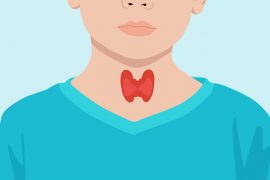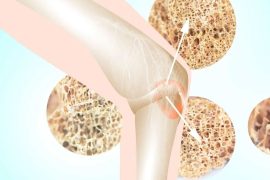PLT Health Solutions, Inc. has achieved a significant milestone by receiving non-GMO verification from the esteemed Non-GMO Project for its Rhodiolife® Rhodiola rosea ingredient. This comprehensive verification extends across crucial aspects like raw materials, manufacturing processes, and logistics, underscoring PLT’s commitment to transparency and responsible practices. Having been introduced to the US market in the late 1990s, Rhodiolife is proudly manufactured through a partnership with Nektium, a testament to PLT’s dedication to innovation.
What sets Rhodiolife apart is its sourcing from the pristine Altai Mountains in Siberia. Renowned for an industry-leading cultivation program, this ingredient is often regarded as one of the most sustainable Rhodiola options available. The cultivation program’s eco-friendly practices resonate with consumers seeking ethical and environmentally conscious choices.
Moreover, PLT Health Solutions, Inc. announced in April 2023 that the Rhodiola material it offers in North America aligns with CITES compliance. This reflects PLT’s commitment to global sustainability regulations, specifically adhering to the Convention on International Trade in Endangered Species of Wild Fauna and Flora.
Parallelly, the Non-GMO Project, a reputable nonprofit organization, has been unwavering in its mission to establish and safeguard a non-GMO food supply. Its Product Verification Program (PVP) diligently evaluates products against the Non-GMO Project Standard, a document crafted through a collaborative process involving industry experts. The Standard’s dynamic nature reflects a diverse range of insights, ensuring a well-rounded approach.
The results speak for themselves, with over 60,000 products now bearing the Non-GMO Project Verified label. This label has grown to become one of the most rapidly expanding indicators of responsible sourcing and transparency within the retail sector.
Against the backdrop of these efforts, the global non-GMO food market is poised for remarkable growth. Projections anticipate a substantial rise from USD 623.96 billion in 2021 to USD 1,231.13 billion in 2028, reflecting a compelling CAGR of 10.20%. This expansion aligns seamlessly with the evolving consumer demand for ethical and sustainable food options, and the groundwork laid by organizations like PLT Health Solutions, Inc. and the Non-GMO Project positions them as pivotal players in shaping the industry’s future.
According to Devin Stagg, Chief Operating Officer for PLT Health Solutions, non-GMO verification for this Rhodiola rosea ingredient is part of the overall commitment to build trust with consumers and offer the ideal ingredient for consumer brands. “Rhodiolife has been a leading, premium form of Rhodiola for decades, with a reputation for sustainability and consistently high quality. Nektium has made moves in the last two years to up the bar on the value this ingredient offers product developers and consumers. We can point to significant sustainability achievements, regulatory compliance, traceability, enhanced delivery via water solubility and lab verified quality as some of these efforts,” he said. “Our non-GMO verification with the non-GMO Project helps to underscore the clean label nature of this ingredient,” he added.
Supporting a Premium Rhodiola Ingredient
According to Stagg, ingredient identity, traceability, transparency and consistency are the hallmarks of a premium ingredient in the nutraceuticals market today. “The Nektium ID Assessment program includes multiple identity tests on every batch of Rhodiolife, including macroscopic and sensorial analysis, development of chromatographic profiles, and independent DNA barcode analysis to ensure authenticity of the raw material. The material is then standardized to provide precise levels of key bioactive compounds, rosavins and salidroside. The resulting HPLC ‘fingerprint’ of the Rhodiolife extract is consistent from batch to batch and matches that of the native root. It is that kind of attention to detail that defines what a premium ingredient can be and is our commitment to our customers,” Stagg stated. “Authentication is especially important when adulteration is suspected. Recently, the American Botanical Council’s Botanical Adulterants Prevention Program suggested that high demand for Rhodiola rosea has led to it being mixed or interchanged with other Rhodiola species before being exported from Asia,” he added.
Disclaimer:
The information contained in this article is for educational and informational purposes only and is not intended as a health advice. We would ask you to consult a qualified professional or medical expert to gain additional knowledge before you choose to consume any product or perform any exercise.








